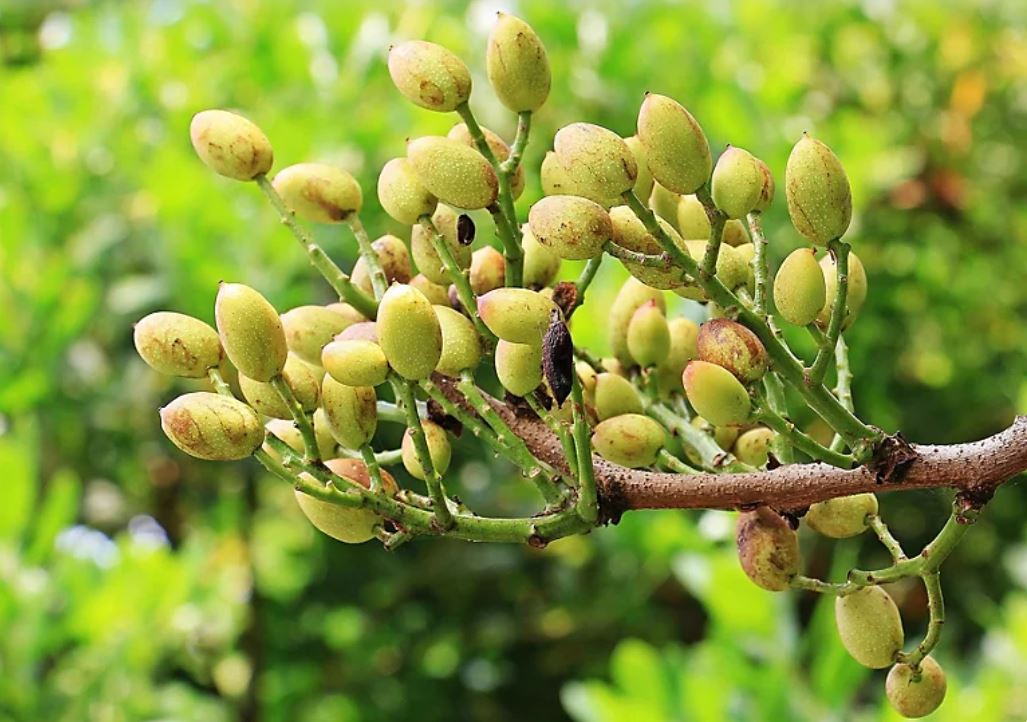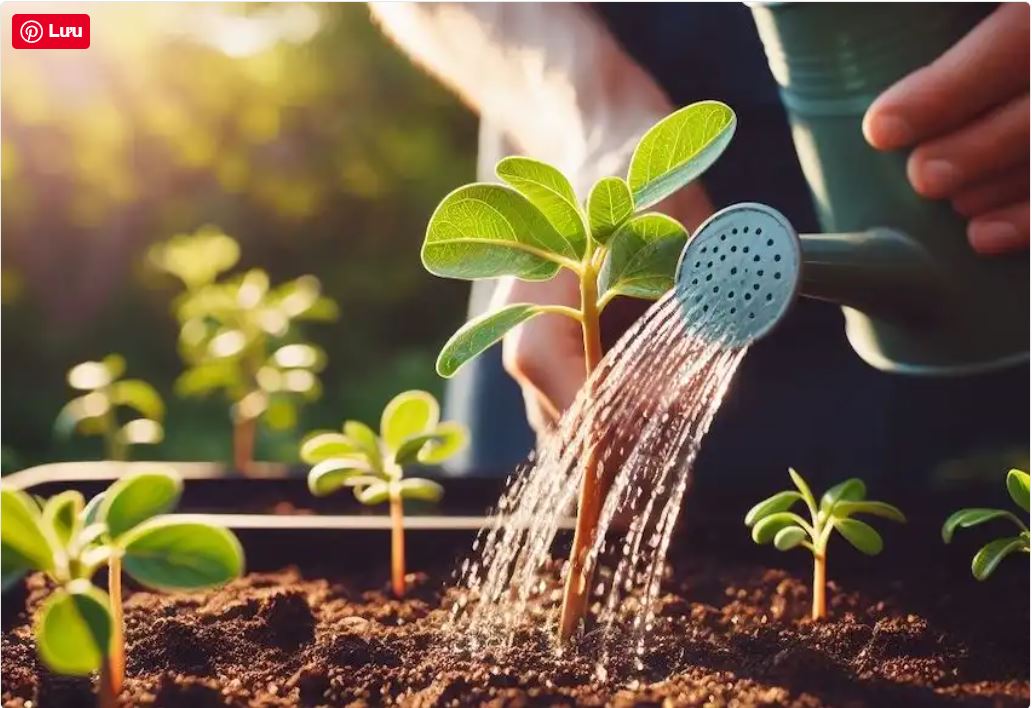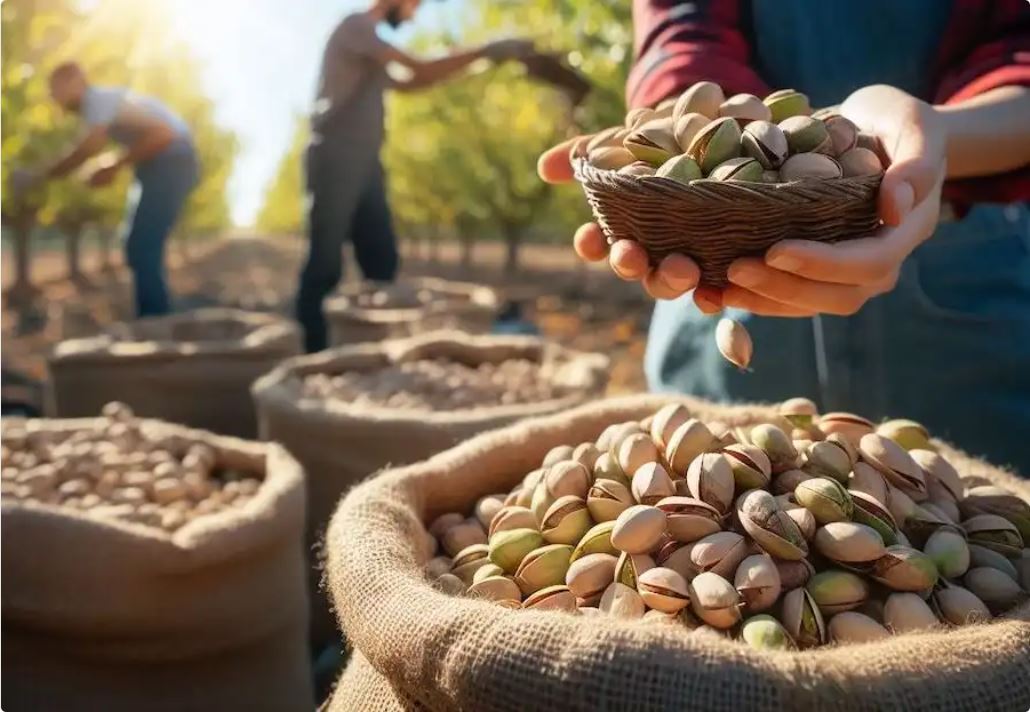Pistachios, well-known for their crunchy texture and rich, unique flavor, are not just delicious but are also packed with nutrients. While growing pistachios can be a lengthy and meticulous process, it’s a rewarding experience for garden enthusiasts willing to embrace a challenge. Here is a comprehensive guide on how to grow pistachios from seed at home.

1. Getting Started:
-
Select Fresh Seeds: Acquire fresh, high-quality pistachio seeds from a reliable source. Seeds should be untreated and unroasted, ideally obtained from raw pistachios.
Stratification Process: Pistachio seeds require a cold stratification process to germinate. Place the seeds in a bag with moist sand and store them in the refrigerator for around 6-8 weeks.
2. Germination:
After stratification, plant the seeds in a well-draining soil mix, around 1 inch deep. Keep the soil consistently moist but not waterlogged. Maintain a temperature around 70°F (21°C) to encourage germination, which can take around 4-6 weeks.
3. Planting:
Once the seedlings are around 4-6 inches tall, they are ready to be transplanted. If you plan to grow them indoors or in a greenhouse, choose large containers, as pistachio trees need ample space.
4. Location and Soil:
-
Location: Pistachio trees prefer a sunny location, receiving at least 6-8 hours of direct sunlight daily.
Soil: They thrive in well-draining, alkaline soil. Amend your soil with organic matter to improve drainage and nutrient content.
5. Caring for Pistachio Trees:

-
Watering: Pistachios are drought-tolerant once established but need regular watering during their formative years. Avoid overwatering to prevent root rot.
Pruning: Regular pruning is essential to maintain the tree’s shape and remove any dead or diseased branches.
Fertilization: Feed the trees with a balanced fertilizer regularly to support healthy growth. Ensure the fertilizer is rich in zinc, as pistachios have a high zinc requirement.
6. Pollination:
Pistachio trees are dioecious, meaning there are separate male and female trees. To produce nuts, you will need at least one of each. It’s advisable to plant several seeds to increase the chances of having both male and female trees.
7. Harvesting:
Pistachios take patience, typically starting to bear fruit in the 5th to 7th year. Harvest the nuts once the shells split and turn a reddish-brown color. Remove the soft outer hulls and allow the nuts to dry in a cool, shaded area for several days.

8. Pest and Disease Management:
Keep a watchful eye for pests like aphids and caterpillars, and diseases like botryosphaeria panicle and shoot blight. Use organic pesticides and maintain proper tree hygiene to prevent infestations.
Growing pistachios from seed at home can be a rewarding venture, bringing the joy of watching the trees mature and ultimately bear fruit. It demands patience, dedication, and meticulous care, but the delight of harvesting homegrown pistachios makes it all worthwhile. Whether you are a novice or a seasoned gardener, this endeavor invites you to deepen your connection with the natural world and cultivate resilience and patience in the gardening journey.
News
JJ Redick reacts to Luka Doncic trade for Anthony Davis
In one of the most jaw-dropping moves of the season, the NBA landscape was rocked by the blockbuster trade involving Luka Dončić and Anthony Davis—a swap that has sent ripples of excitement, disbelief, and heated discussion through the league. Among…
Anthony Davis FULL reaction to trade to Mavericks for Luka Doncic
In a blockbuster move that sent shockwaves through the NBA and left fans reeling, Anthony Davis has been traded to the Dallas Mavericks in exchange for Luka Dončić. In the immediate aftermath of the news, Davis took to the media…
Shaq reacts to Dallas Mavericks wanting Kevin Durant after Luka-AD trade 👀
In the constantly shifting world of the NBA, trade rumors and blockbuster moves are a regular part of the season’s drama. The latest twist has fans buzzing: the Dallas Mavericks have reportedly set their sights on acquiring Kevin Durant in…
Donovan Mitchell FILTHY poster dunk on Kristaps Porzingis 😳
In a game filled with high-intensity moments and jaw-dropping highlights, one play in particular has left fans and analysts buzzing about Donovan Mitchell’s latest display of athleticism. Early in the contest, with the atmosphere already charged by an evenly matched…
Joel Embiid hits go-ahead bucket vs Mavs then chats with Anthony Davis after game
In one of the most thrilling contests of the season, Joel Embiid delivered a clutch performance against the Dallas Mavericks, punctuating the game with a go-ahead bucket that sent the home crowd into a frenzy. The atmosphere in the arena…
D’Angelo Russell game winner as Nets hit two 3’s in 3 seconds to win vs Rockets 😱
In one of the most electrifying moments in recent NBA history, D’Angelo Russell delivered an unforgettable game-winner that left fans and commentators in complete awe. With the Brooklyn Nets locked in a tense battle against the Houston Rockets, the outcome…
End of content
No more pages to load











